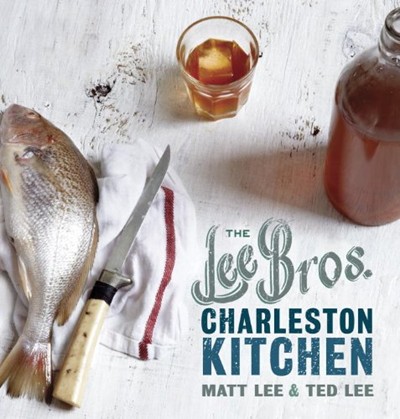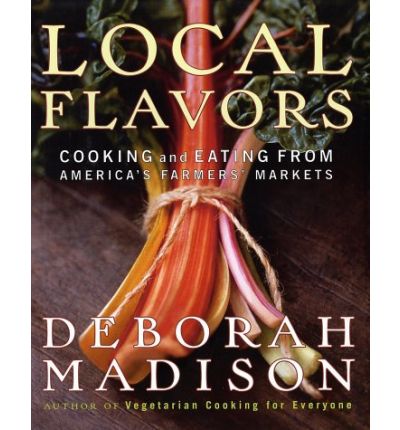Local and localer
April 16, 2013 by SusieIn the days before I had my own vegetable garden, I could hardly wait for the farmstands to fill up with local color and variety each year. What’s better than a fresh carrot? A purple carrot grown five miles away. What’s better than a cool new radish? a bunch of Easter Egg radishes, ovoid and pastel. What’s better than a crisp just-picked apple? A crisp, just-picked Westfield Seek-no-further, grown in its native orchard just to the south.
 In theory, local produce sounds
great, and it is. Especially on those rare occasions when it
manages to also be both organic or heirloom or open-pollinated, and
affordable. But it’s one thing to cook local, and another
thing to publish a local cookbook. For example, consider The Lee
Bros. Charleston Kitchen, a gorgeous new production from Matt
and Ted Lee, who are among my favorite Southern authors.
In theory, local produce sounds
great, and it is. Especially on those rare occasions when it
manages to also be both organic or heirloom or open-pollinated, and
affordable. But it’s one thing to cook local, and another
thing to publish a local cookbook. For example, consider The Lee
Bros. Charleston Kitchen, a gorgeous new production from Matt
and Ted Lee, who are among my favorite Southern authors.
Every page is a testament to Lowcountry foodways, and many are doable in any part of the country, so long as there’s a well-stocked supermarket nearby. But of course the most mouthwatering recipes are the ones that are the hardest to source. Where am I going to get live she-crabs with their roe? or red field peas? or chainey briar (“the tender shoots of the smilax vine”)? Who carries mako shark around here? I can’t even get salsify, and fresh peaches are around for only 5 minutes in July.
 I had a similar problem with
Deborah Madison’s inspiring and beautiful Local
Flavors in 2002. It covers the whole country, so
it’s not seasonally limited. But the recipes call out
specifically for opal basil and Freckles lettuce or sugar loaf
chicory or lovage leaves or Romanesco broccoli. Even when the
author considerately assures you you can substitute something else,
it’s somehow not satisfying to have to. Because isn’t that
sense of the artisanal and specific part of what made you fall in
love with the book? And if it was just a recipe for plain old
beets, not golden ones or stripey Chioggias, would it be worth the
trouble of springing for a cookbook?
I had a similar problem with
Deborah Madison’s inspiring and beautiful Local
Flavors in 2002. It covers the whole country, so
it’s not seasonally limited. But the recipes call out
specifically for opal basil and Freckles lettuce or sugar loaf
chicory or lovage leaves or Romanesco broccoli. Even when the
author considerately assures you you can substitute something else,
it’s somehow not satisfying to have to. Because isn’t that
sense of the artisanal and specific part of what made you fall in
love with the book? And if it was just a recipe for plain old
beets, not golden ones or stripey Chioggias, would it be worth the
trouble of springing for a cookbook?
Personally, I like cookbooks that have a strong, consistent sense of geographic season (so nobody’s going to be asking you to prepare something that has both apples and asparagus when one or the other of them is going to have to come from South America). But I get frustrated with books which drive me toward hyper-local ingredients I can practically never get, or which, if I get them, will be seriously compromised in quality compared to what’s in the book. I don’t fault the publishers, or the authors. But it’s one of those cases where it pays (in book sales!) to be aware of what a cook can realistically source, and to go overboard helping out with sourcing or substitution if it’s going to be tricky.
What’s your local “threshold”? Will you set aside a recipe if it’s got 1 ingredient you can’t source? 2 or 3? Will you avoid buying a cookbook that clearly caters to a locale very different from your own?
Categories
- All Posts (6940)
- Antipasto (2135)
- Author Articles (247)
- Book News (935)
- Cookbook Giveaways (983)
- Cookbook Lovers (257)
- Cooking Tips (109)
- Culinary News (299)
- Food Biz People (552)
- Food Online (791)
- Holidays & Celebrations (272)
- New Cookbooks (149)
- Recipes (1500)
- Shelf Life With Susie (231)
- What's New on EYB (133)
Archives
Latest Comments
- Atroyer7 on Danube Cookbook Review and Giveaway
- demomcook on What foods do you look forward to the most for each season?
- demomcook on Danube Cookbook Review and Giveaway
- Darcie on How cookbooks can help build resilience
- mholson3 on Danube Cookbook Review and Giveaway
- Rinshin on How cookbooks can help build resilience
- sarahawker on Danube Cookbook Review and Giveaway
- Sand9 on Danube Cookbook Review and Giveaway
- hankintoby29 on Heritage Cookies of the Mediterranean World – Cookbook Giveaway
- WBB613 on Feasts of Good Fortune Cookbook Giveaway